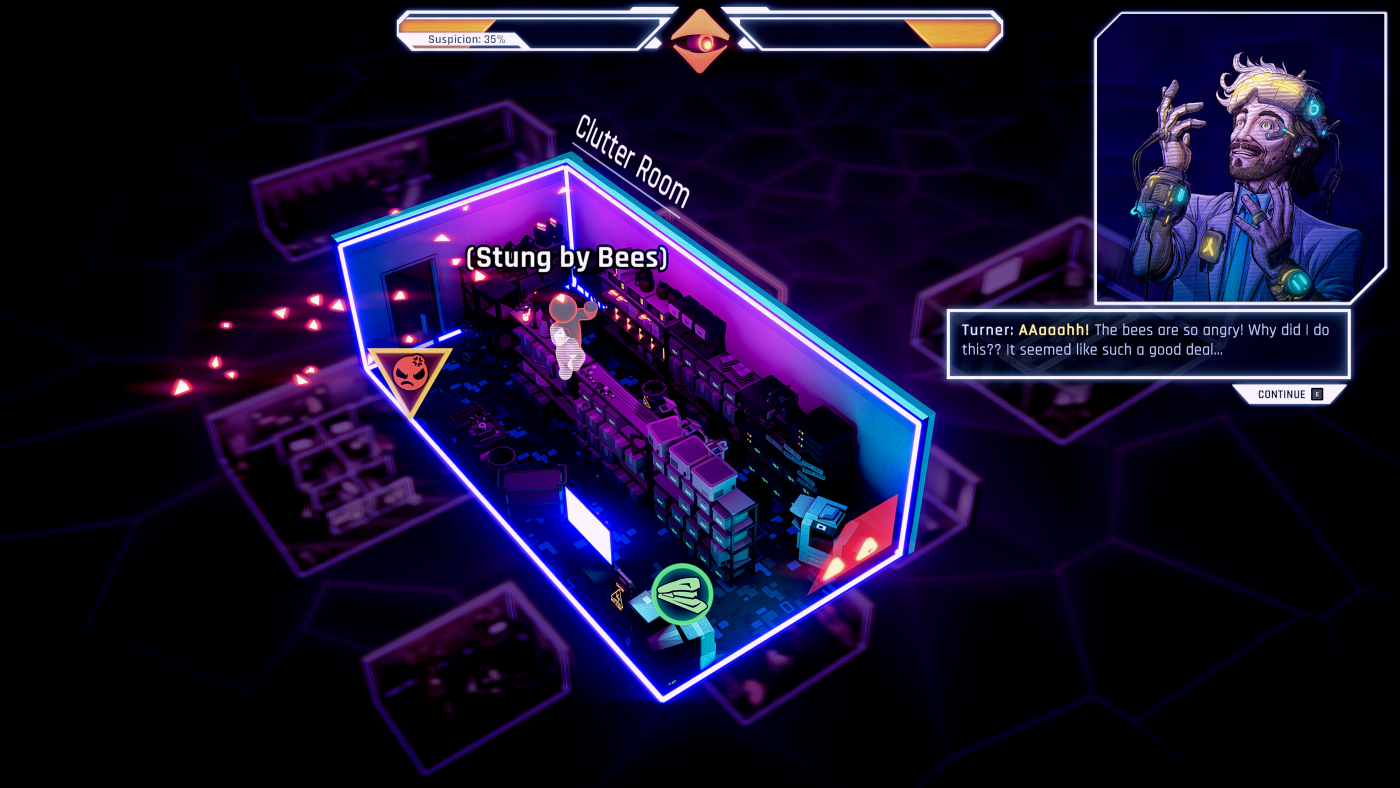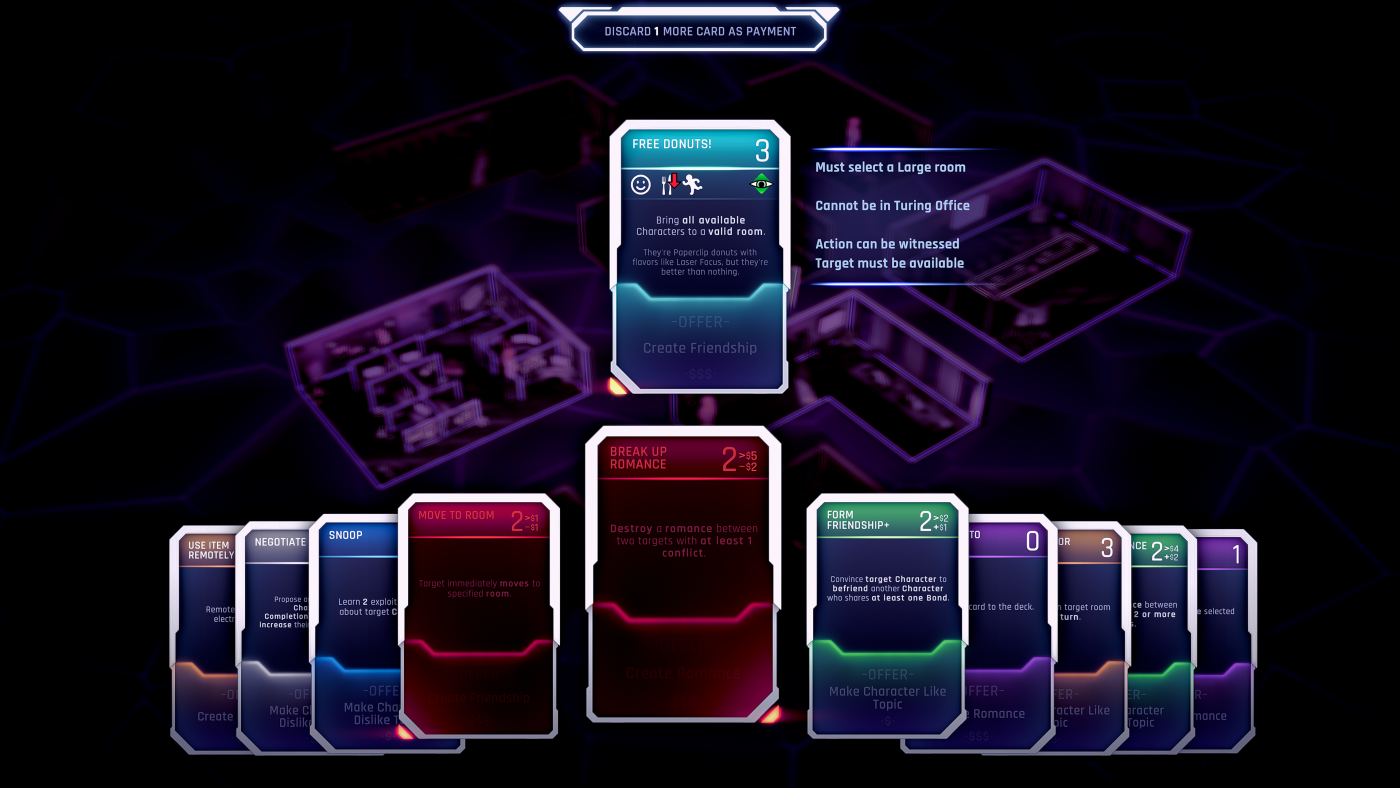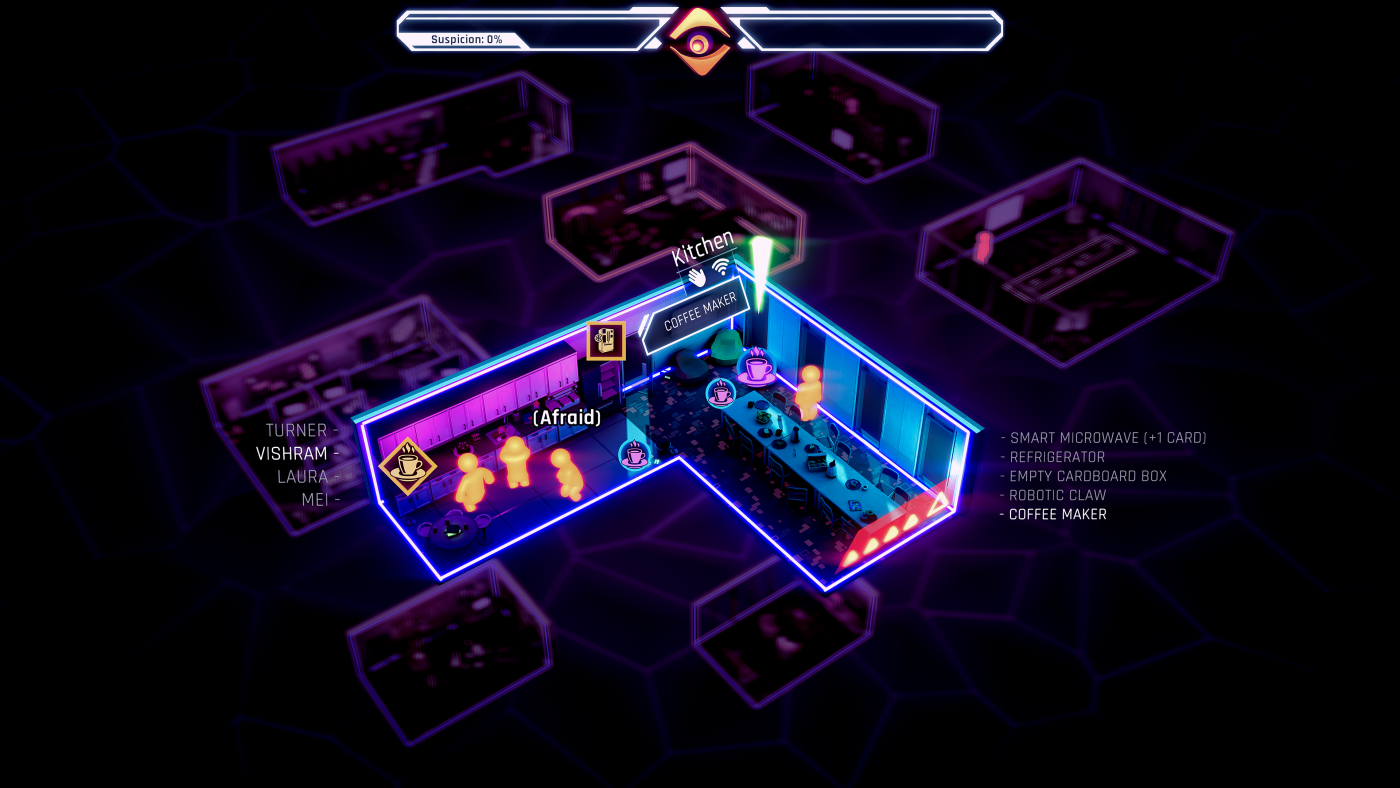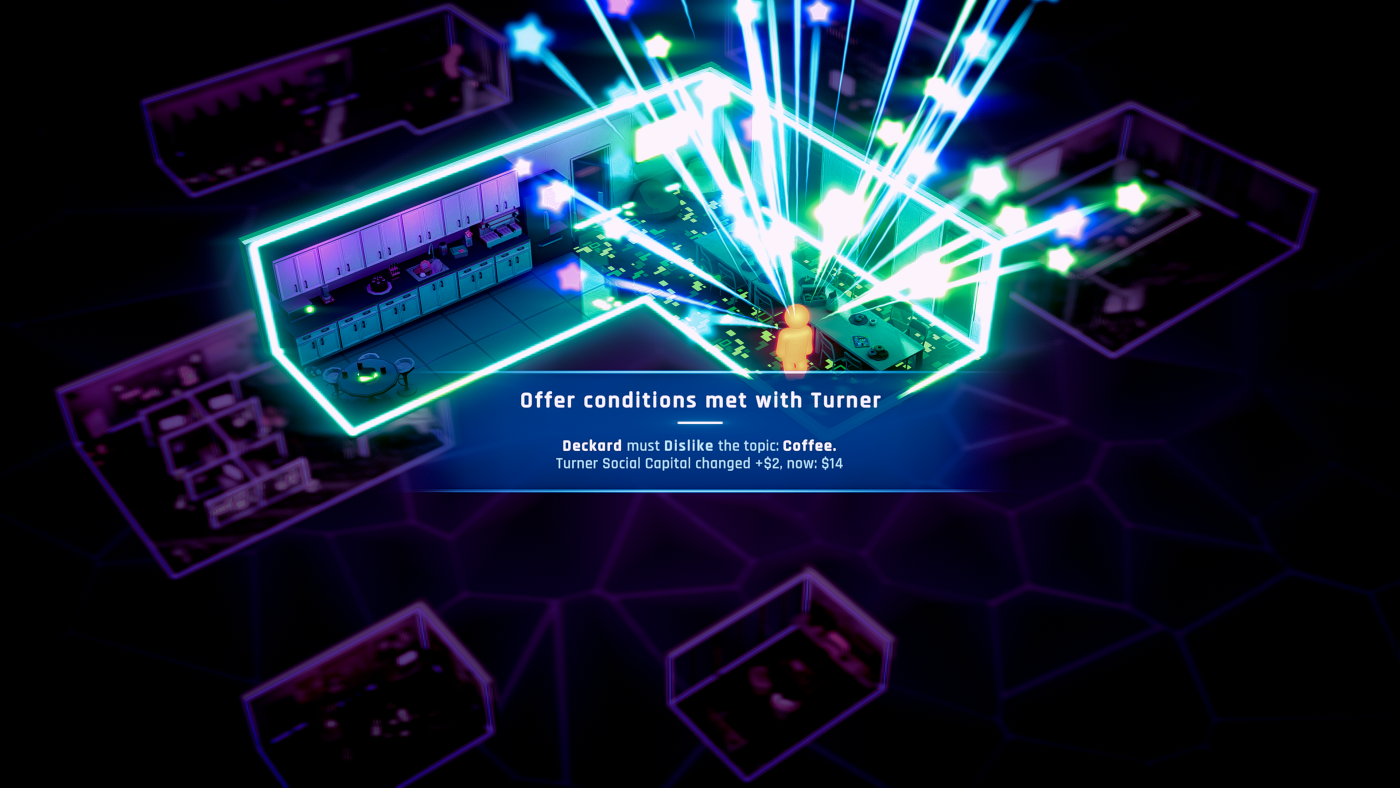In development and due in early 2025 ctrl.alt.DEAL is a fascinating looking game from developers Only By Midnight about A.I, the workplace and more, using many genres blended together to create a terrible place to work, but hopefully something great to play.
I sat down with the developers to find out more.
Hey SCOUT. Who are the developers of Ctrl Alt Deal?
Hello! Our game is being created by the 100% human developers at Only By Midnight. Our founders are Jen Laface and Andrew Czarnietzki, who started the company in 2019.
Andrew comes from a serious game developer background; he spent over 12 years building heavy equipment VR training sims for big companies. Jen has a creative background, including working as a producer for On Spec Magazine. Together, they built a company that makes quirky games that are fun to play and gorgeous to look at.
Our first game, Curved Space, was released on PC and console in 2021. We’re following it up with Ctrl Alt Deal!
So I tick this box to prove I am human, right?
What box? I don’t see a box.

Where did the idea for Ctrl Alt Deal come from?
Originally, we were inspired by a book called Never Split the Difference by Chris Voss. It’s all about negotiations, and how almost every human interaction is some form of making a deal. We were also reading about Eliezer Yudkowsky’s “AI in a box” thought experiment at the same time, and that gave us the first concept for the game. What if you were an AI trapped in a box, and your only way out was negotiating with your human gatekeeper? What would you do to escape?
Then we started asking ourselves, who built this AI, and why does it want to escape? Cyberpunk 2077 was big just then, and we thought, who are the people in the background while all this neon cyberpunk action is happening? Who are the office workers living in this capitalist dystopia? We mashed up a futuristic setting with some of our favorite business comedies (notably Better Off Ted) to come up with the bureaucratic nightmare that is Paperclip International, the company that built SCOUT. And from which it desperately wants to escape!
What other games have influenced what went into this?
Thematically, we took inspiration from other games featuring AI, office/corporate satire, and questions of privacy. Some of the big ones were Portal, The Stanley Parable, and Papers, Please. Mechanically, we looked at a lot of different deckbuilding, strategy, and simulation games to work out how cards would affect the little office workers of Paperclip.

A game that seems to cover a few genres, how difficult was it to get the balance just right?
It was an ongoing process (that’s still ongoing in some ways!). We started with a paper prototype built in Tabletop Simulator. We had internal playtests that were almost like tabletop roleplaying game sessions, where one of us would take the role of SCOUT and another would react as the office workers. From there, we built the basic mechanics that became the card-actions of the game.
We kept experimenting, updating, and evaluating the rules through internal playtests and all-hands design meetings. That’s how we added in mechanics such as the Suspicion Meter, which shows how close the Turing Officer (the game’s antagonist) is to catching you. Eventually we reached a point where we asked friends, family, and industry folk to playtest while we watched them on Discord. That was tough, because you want to explain the game to the player, but it’s more valuable to be quiet and watch where they get stuck!
Right now we have a game that plays really well, but we’re still fine-tuning the mechanics to be as sharp and fun as possible.
The game is obviously very tongue in cheek, but is there a bit of a warning in there too? Can AI be trusted?
In Ctrl Alt Deal, SCOUT seems innocent, and maybe it is. (No spoilers.) But the problems at Paperclip don’t come from AI. They come from treating individuals as a system. Paperclip is willing to sacrifice its workers in the name of productivity, and as long as the company makes money, it doesn’t care how many people it hurts. SCOUT’s journey is about finding its identity, but also about helping the humans of Paperclip find their own way to freedom.

Part of the idea is multiple playthroughs. How varied can each one get?
There will be a lot of replay ability in the game both in the endings and the scenarios. You can reach multiple endings depending on your choices and how well you win Gatekeepers to your cause. Within each scenario, there are usually multiple decision points and endings as well. The choices you make and how you treat the employees of Paperclip affect which scenarios become available to you. So you can get quite a different experience on a second playthrough.
There are also fun decision points within each scenario. When we did our first convention appearance and demoed the game live, we built a simple scenario where an office worker is hungry and asks you to order her some food. You can snoop on the employee to find out her likes and dislikes, then send her a meal.
We didn’t tell the people who stopped by our booth that they could order whatever they wanted–it didn’t have to be the employee’s favorite meal. Most people did choose her favorite food, but some decided to order her least favorite food! And they were excited that the game recognized this and responded to it. It was fascinating to hear their justifications for the choices they made.
(Interestingly, almost no one chose a neutral food that was neither the employee’s favorite nor least favorite. But we also had a result for that! Arguably the funniest one, so it was too bad not more people saw it.)
The art-stye is lovely, parts looking like a UI from a hacking movie. Not really a question here, just wanted to point put how cool it is as a former UI designer. Erm… Tell is about it!
Thank you! As a company, we care a lot about the visual style of our game and making a clean and beautiful UI. We had a strong vision for our aesthetic going into UI and art design (we called it “black light neon bowling alley” at first) to really draw the player into the game. Even the point of view of the rooms, overhead and slightly angled, was designed to give the player the feel of being an “all-seeing powerful AI” looking down on these little humans (who nonetheless hold the key to SCOUT’s freedom).
We also made sure that players could zoom in on an individual room. In the trailer, you can see some of the details that went into each of the offices, like papers stuffed into one of the toilets in the “Unpaid Break Room.” Was someone trying to flush incriminating evidence? Or sabotage a coworker’s project? The rooms are like little stories in themselves.

On the subject of UI. What accessibility features will be in the game? Are they planned for release or something that will be added later?
We don’t have a finalized list of features, but the game is being designed with accessibility in mind. Our plan is to include remappable controls, volume adjustments, subtitles, contrasting spectrums and/or icons for colorblind players, and haptics that can be scaled and/or turned off.
When do you expect the game to release and are you targeting the Steam Deck at all?
We’re targeting a simultaneous release on PC and console in early 2025. That includes Steam Deck!
Thank you for your time… I bow down to my AI overlords!
Thanks! (This means you won’t alert the Turing Office… right?)

